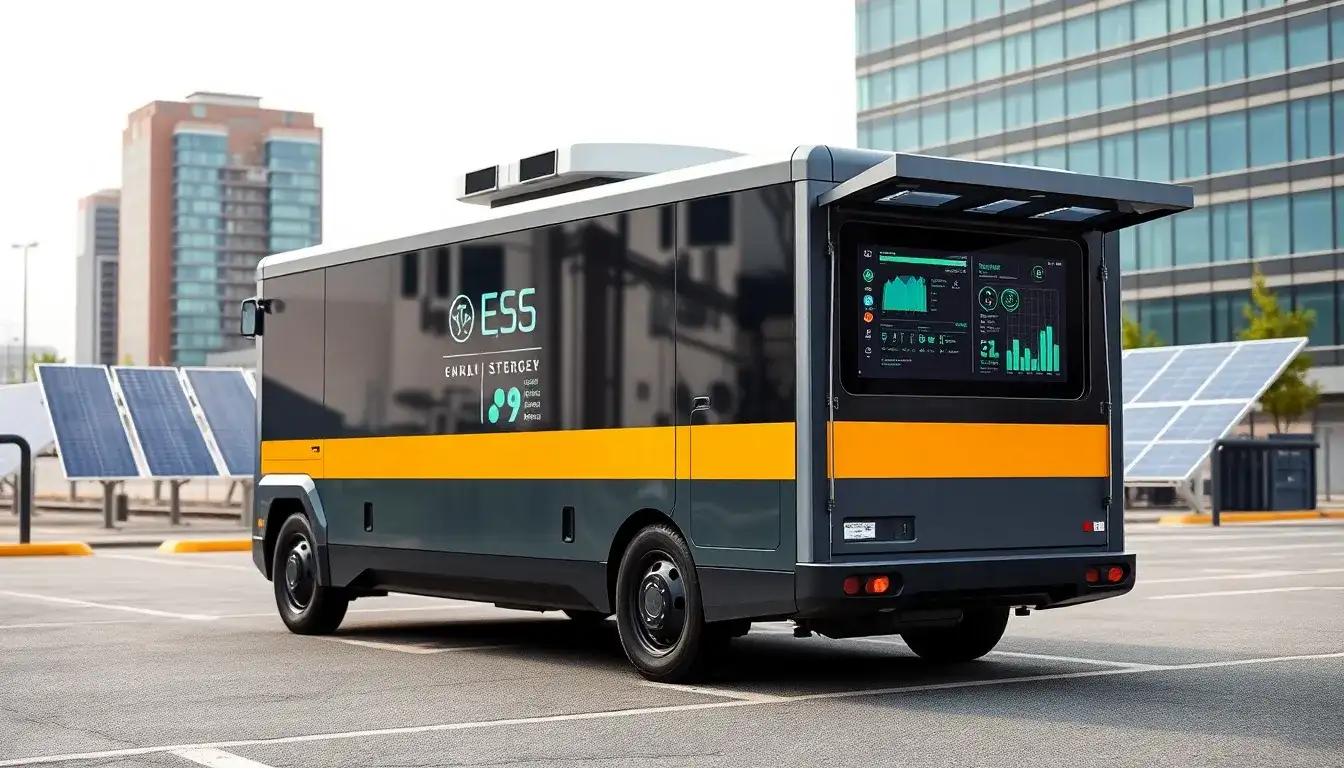
Integrated Solution for Energy Monitoring and Intelligent Operation of Mobile Energy Storage Vehicles
1. Industry Background
With the global push for sustainable energy development, the installed capacity of renewable energy sources such as solar and wind power is rapidly increasing. However, these energy sources are characterized by intermittency and instability, which pose challenges to the stability of power supply. Mobile energy storage vehicles, as flexible storage devices, effectively address these issues. They can store electricity during periods of surplus energy production and release it during energy shortages or peak demand, thus playing a key role in stabilizing the power system. Furthermore, the rapid advancement of information technologies such as 5G and the Internet of Things provides technical support for the intelligent and precise energy monitoring of mobile energy storage vehicles. The use of these vehicles is becoming increasingly widespread in emergency rescue efforts, power supply to remote areas, and distributed energy access, leading to a growing demand for real-time and accurate monitoring of their energy status.
2. Industry Challenges
- Incomplete Energy Data Collection: Existing systems often only capture basic parameters of the mobile energy storage vehicle’s battery, such as charge and voltage, while lacking critical energy data on charge-discharge efficiency, remaining lifespan, and health status. This makes it difficult to comprehensively assess battery performance and energy utilization.
- Lack of Unified Standards for Energy Monitoring: Mobile energy storage vehicles may be equipped with various systems such as Battery Management Systems (BMS), Power Conversion Systems (PCS), and fire protection systems, but there is a lack of unified data interfaces and communication protocols. The vast amount of complex data is challenging to integrate into management platforms, complicating the construction and operation of the system.
- Difficulties in Energy Optimization Scheduling: Energy losses occur during storage, delivery, and generation processes, yet the absence of comprehensive monitoring makes it challenging to assess energy efficiency in real-time. This hinders the efficient energy optimization scheduling of mobile energy storage vehicles based on their location and grid load conditions.
3. Proposed Solutions
- Comprehensive Energy Data Collection Design: High-precision sensors and intelligent collection devices will be installed on mobile energy storage vehicles. In addition to conventional sensors for charge, voltage, and current, additional sensors will be added to monitor battery internal resistance, temperature distribution, and charge-discharge cycle counts. This setup will connect with BMS and PCS devices to ensure comprehensive collection and preprocessing of energy data, guaranteeing its accuracy and completeness.
- Reliable Data Transmission Network Establishment: A combination of various communication technologies, including 5G, 4G, and satellite communication, will be adopted to automatically switch to the optimal communication link based on the vehicle’s environment, ensuring stable data transmission. The introduction of edge computing technology will allow for initial analysis and filtering of collected data on the vehicle, reducing unnecessary data transmission, and minimizing latency and packet loss risks. Important data will be encrypted during transmission and backed up redundantly to ensure its security and integrity.
- Unified Data Interaction System Construction: A standardized data platform will be established to transform and interpret energy data from different brands and models of equipment on the vehicles according to a unified standard. This will enable seamless data integration and centralized storage, management, and sharing, laying the foundation for subsequent data analysis and applications.
- Intelligent Energy Optimization Scheduling System Development: The private deployment of a cloud-based vehicle management platform will allow for the creation of an electronic display that provides information on device location distribution, quantity and type, operational status, working parameters, alarm frequency, maintenance orders, and energy efficiency. This system will facilitate reasonable control and intelligent operation to ensure the safe operation of vehicles and stable power supply.
Special Statement: The above content (including any images or videos) has been uploaded and published by a user on the NetEase Hao platform, which only provides information storage services.







